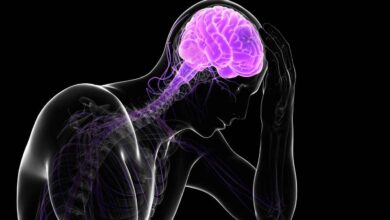The Healing Power of Words: How Reading Supports Mental Health

The sound of a page turning—so simple, almost trivial. But it’s more than just a whisper of paper. That flip, that transition from one moment to the next, often carries with it a breath of clarity. For many, reading is more than a habit or hobby. It’s therapy with a spine and a title. The power of reading on mental health is not a poetic exaggeration—it’s measurable, tangible, and surprisingly profound.
Words, strung together with purpose, have the ability to cut, soothe, provoke, or heal. In an age where mental wellness is a central concern, it’s worth exploring how books offer an alternative route to calmness—one that doesn’t come in a bottle or cost $200 an hour.
Escaping Without Leaving: Books as a Safe Haven
Picture this: you’ve had a long day. Your thoughts are loud, your breath shallow. You curl up in bed, open a novel, and within minutes, you’re standing under a Martian sky or solving a crime in Victorian London. That’s not just entertainment. That’s escape. And sometimes, escape is survival.
Reading provides psychological distance from anxiety triggers. According to a 2009 study by the University of Sussex, reading can reduce stress by up to 68%—more effective than listening to music, going for a walk, or even drinking tea. Just six minutes of reading can slow the heart rate and ease muscle tension.
The magic? It’s in the absorption. When you’re immersed in a narrative, your brain takes a short break from worrying about unpaid bills or unread emails. It temporarily files away real-world stressors in favor of fictional ones. This isn’t avoidance; it’s mental recharging.
Bibliotherapy: Yes, It’s a Real Thing
Bibliotherapy—ever heard of it? Not some mystical practice from a dusty old book club, but a growing field that treats psychological distress using carefully chosen texts. It dates back to World War I, when veterans recovering in hospitals were encouraged to read fiction and poetry to process trauma.
Today, therapists often recommend specific books tailored to patients’ needs. For someone struggling with grief, A Man Called Ove might help. For anxiety? Try The Midnight Library. Especially now there is a reading app, like FictionMe, where you can find stories on any topic. Do you like mafia fiction stories or romantic stories? Just choose a genre and you will be able to find novels with the best rating and reader ratings.
A 2013 meta-analysis published in PLoS ONE found that bibliotherapy significantly reduced depressive symptoms. In some cases, outcomes were comparable to traditional cognitive behavioral therapy. Think about that: printed words rivaling psychotherapy, in some cases.
Of course, it’s not a replacement. But it can be a companion. And sometimes, the presence of a well-timed metaphor can offer more comfort than a friend fumbling for the right words.
Empathy by Osmosis: Fiction and Emotional Intelligence
Let’s switch gears. It’s not all about soothing nerves or reducing cortisol. Reading—especially fiction—also fosters empathy. When you read a story told from another person’s perspective, you begin to inhabit their inner world. You think with their worries, feel with their pain, breathe their choices.
This is not sentimental fluff.
A 2013 study from Science found that reading literary fiction improves Theory of Mind—the ability to understand others’ beliefs, intentions, and emotions. That’s huge for emotional intelligence and mental resilience. It builds our inner vocabulary for understanding others—and by extension, ourselves.
So when someone says reading helps you become a better person, they’re not being metaphorical. They’re likely referencing actual neuroscience.
Nonfiction, Memoir, and Self-Understanding
Not everyone likes fiction. Some prefer truth unfiltered. That’s okay. Memoirs, essays, and even self-help books carry their own therapeutic weight. They offer connection. A shared experience. And almost all of them are available on iOS devices in thematic applications. Printed books are not required, and there are even free stories online.
When someone reads The Bell Jar or Man’s Search for Meaning, they don’t just absorb information—they see their own struggles mirrored and refracted. Sometimes, that’s all it takes to feel a little less alone.
Moreover, educational nonfiction (books on psychology, mindfulness, trauma) empowers readers with tools. Reading The Body Keeps the Score may not heal trauma overnight, but it explains it. An explanation is a powerful counterforce to fear.

The Ritual Itself: More Than the Content
Let’s get even more granular. Strip away the stories, the characters, the narrative arcs. What’s left? A ritual. Sitting still. Focusing. Turning pages. A rhythm. Predictable. Slow. Controlled. For anxious minds, that’s gold.
In a world of infinite scroll and constant alerts, reading trains the mind to stay. To wait. To listen. This meditative quality alone—regardless of the subject matter—can regulate breathing, reduce impulsivity, and build patience.
It’s not just what you read. It’s what you read.
A Word of Caution: Not All Reading Is Healing
Let’s not romanticize excessively. Reading the news for three hours a day won’t help your anxiety. Neither will doom scrolling Reddit or obsessing over political memoirs that trigger more anger than insight.
The type of reading matters. Healing reading tends to be narrative, reflective, character-driven, or spiritually elevating. It invites pause and self-awareness. Choose wisely.
Also, reading should not become isolated. Use books as bridges, not walls. Let them connect you with others—whether through book clubs, therapy, or simply saying, “You should read this.”
Conclusion: When in Doubt, Read Something
So here we are: books as form of therapy, paper as medicine, reading as silent revolution. Whether you’re depressed, anxious, heartbroken, or simply stuck, the impact of reading can be quietly transformative.
Is it a cure? No. Is it a balm? Often, yes. In a world that rewards speed, noise, and reaction, reading remains slow, silent, and intentional. And maybe that’s what our brains are starving for.
You don’t need to read War and Peace. You don’t even need to finish the chapter. Just open the book. Let the words do what they’ve done for centuries: listen, witness, and—when they can—heal.


